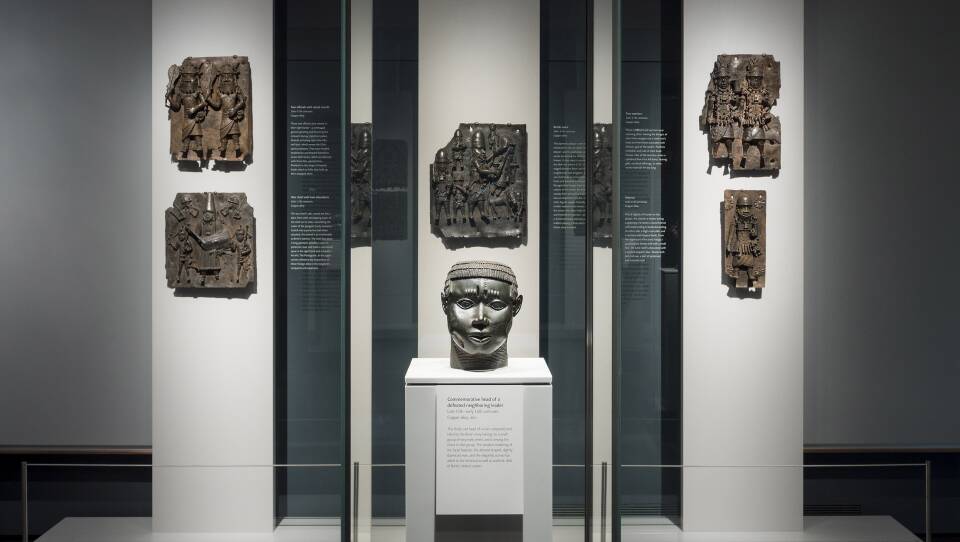The Museum of Fine Arts will close its Benin Kingdom Gallery on April 28, the museum announced Tuesday.
The gallery opened in 2013 after the MFA accepted works lent from the collection of Robert Owen Lehman. As part of their agreement, the museum would eventually acquire the pieces. But now, Lehman has requested these artworks be returned to him.
“Unfortunately, we were not able to make progress on a mutually agreeable resolution for our gallery of Benin bronzes,” said MFA Director Matthew Teitelbaum in a press release. “Without such a resolution, the gallery could not be sustained in the long term.”
Of the 34 pieces the MFA received, 32 were from the ancient Kingdom of Benin in what is now southern Nigeria. The remaining objects were from present-day Sierra Leone and Guinea.
Recent decades have heard open discussion about the issues of provenance of certain objects in artistic institutions — especially when such works on display were acquired through acts of theft and other violations. Fittingly, the MFA’s announcement cites ethical quandaries around the Benin artifacts.
The museum said the means by which Lehman came into possession of many of these objects prompt questions about how to display these works ethically. In 1897, British troops invaded Benin City and looted thousands of objects from the kingdom’s treasury. Many objects Lehman purchased at public auction, according to the MFA, could be traced to that violent confrontation.
Though the museum is returning dozens of Benin artworks, it does own five that will remain in its collection and go on view in June 2025. However, as the museum’s Senior Curator for Provenance Victoria Reed puts it, that’s only the short-term plan.
“Long term, I can say that we are unequivocally committed to reaching an ownership resolution about this much smaller collection of Benin bronzes,” Reed said. “We do know that several of these bronzes were looted in 1897. We would consider them appropriate candidates for restitution, and we want to find the best way to make that happen.”
The gallery space will also be transformed to highlight the MFA’s collection of Nubian Art. That will go on display on May 1.





